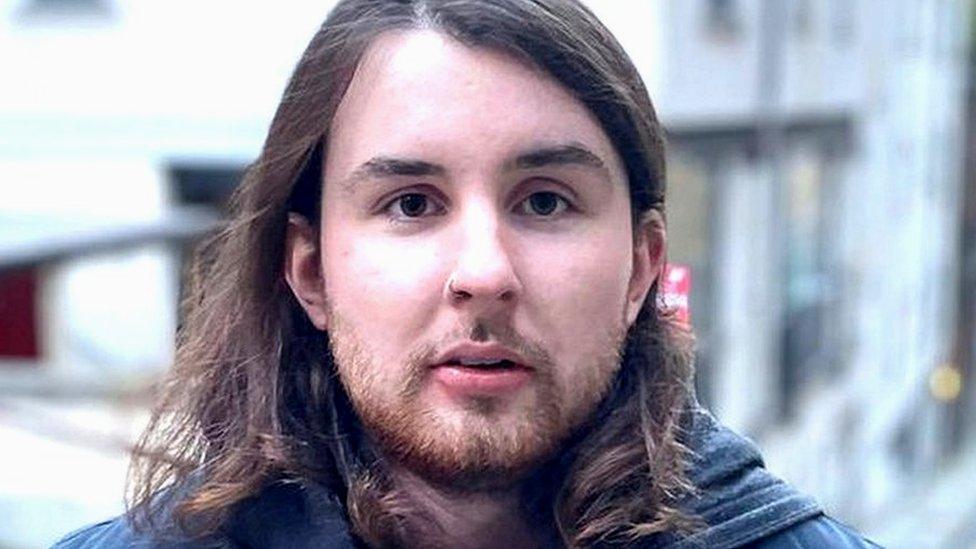'We fix our own toilets and lay floors to get cheap rent'
- Published
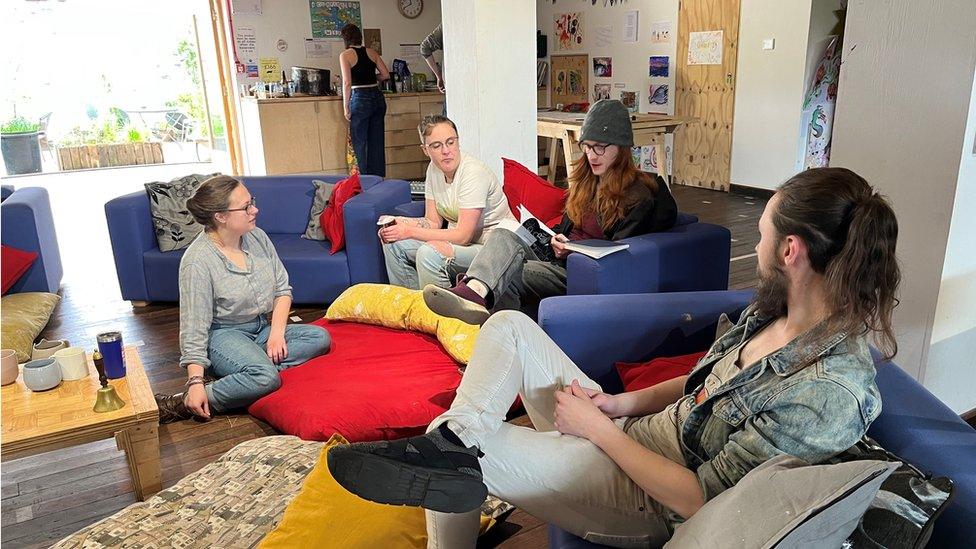
Students say the housing co-op provides community as well as low cost accommodation
Student accommodation is costly and hard to find in Scotland's capital, but some young people have taken on the responsibility of building maintenance to get cheaper rent.
Many members of Edinburgh Student Housing Co-op (ESHC) have also found community in their shared home.
The 106 residents of former university halls co-own the organisation and manage the property collectively.
They are hoping to support students in other cities to set up similar homes.
Erin Hancock, from Texas in the US, is working on a PhD in Celtic and Gaelic studies looking at transatlantic Scottish weaving traditions.
She told BBC Scotland the low rent - currently set at £374 per person per month - was part of the draw for many students.
"It think once people get to know the community itself it tends to be somewhat less of one," she said. "However, I think it is incredibly important as it is one of the most, if not the most, affordable housing in Edinburgh.
"So it makes housing accessible for a lot of members of the LGBTQ+ community, for a lot of people of colour and a lot of international students like me."
She said rent reflected the cost of running the buildings, which are owned by Places for People and are leased on a five-year basis.
"The work we put into maintaining the building, repairing our own laundry machines, doing the cleaning work, that all goes into making that rent possible," Erin said.
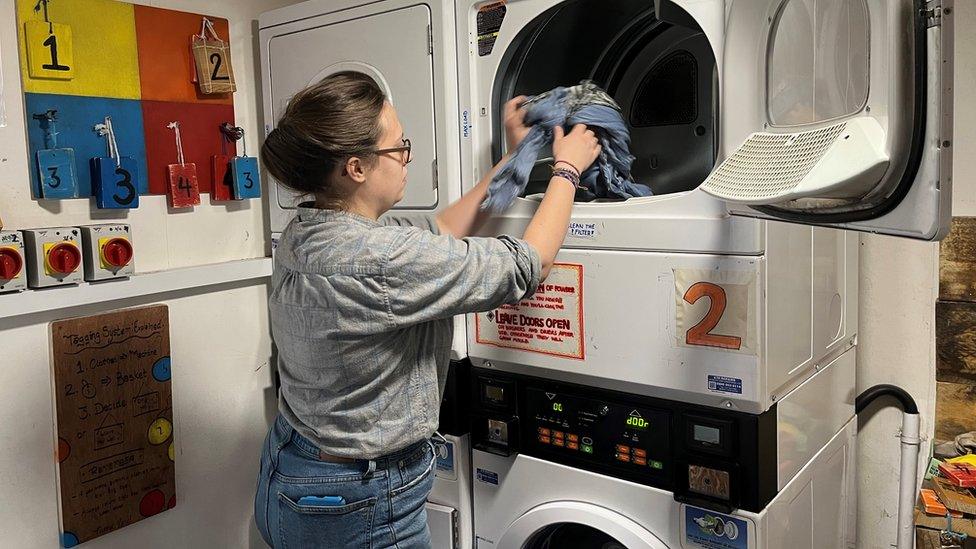
Members of the co-op have to work for a few hours each week to help with the upkeep of the building
Residents arrive with skills to share - from plumbing to DJing - and learn new ones in exchange for being part of the group.
They each do a few hours' work each week, whether that is renovating floors, maintaining toilets, providing security, filmmaking, or working on one of dozens of other teams.
Competition for rooms is high. In the last round of applications there were 54 students vying for just six places, a reflection of the wider problem meeting demand for student housing in Edinburgh.
New members have to be approved by the community to gain a place in one of three intakes each year and are then matched with an existing group in a three or five-bedroom flat.
More than half of ESHC residents say they identify as "queer" and they have found a sense of belonging at the co-op.
Evie Bell, who has lived there for a year, said: "I'm so happy to be part of the co-op, particularly as a queer person it's wonderful for providing community.
"Because we have such a concentration of queer folk here it's been wonderful to find likeminded people," the second year history of art and English literature student said. "It gives people a safe space in order to explore their identities in a way other living arrangements might not.
"There's a student housing crisis on top of a housing crisis, but there's also a homing crisis. Generation Z is the loneliest generation on record and we're providing not only a housing alternative but also a homing alternative."
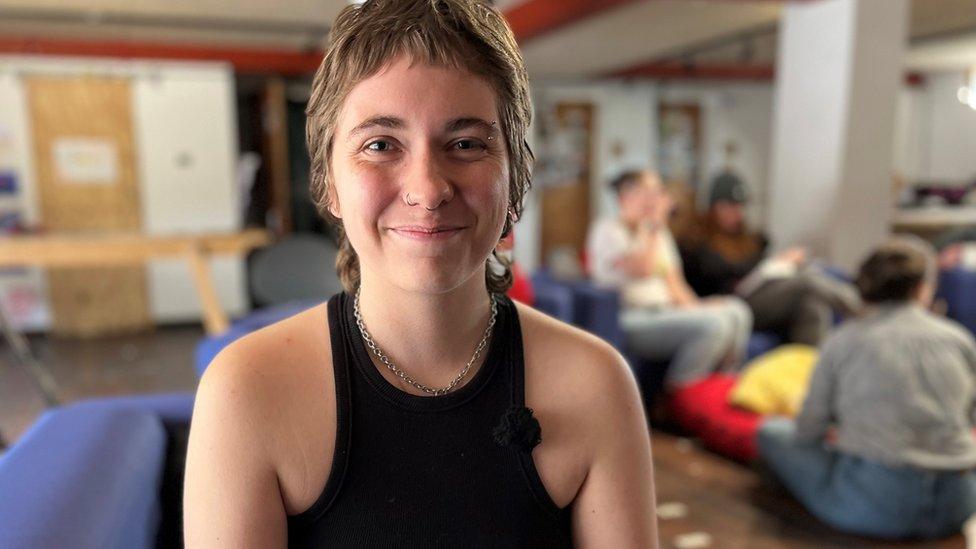
Evie Bell said the co-op members are hoping to buy their property, which is currently leased.
ECSH has been self-funded, but was recently awarded £10,000 from the National Lottery to be used on renovations.
"We would like to own the buildings at some point," Evie said.
"Despite the fact that the SNP is supposed to be a co-operative government and they are supposed to commit funding to co-operatives, we haven't seen any of that money. And we're the largest student house co-operative in the UK, let alone Scotland, so presumably we would be one of the first recipients of it."
The former Edinburgh Napier University buildings were acquired in 2014, just months after the co-op group was formed.
"It was the right moment, right time," Evie said. "In the co-operative world we're pretty much a miracle that we managed to acquire this place. But a lot of our work is presenting ourselves as a success story, working with other co-operatives and trying to prove that the co-operative model does work."
Members of the co-op see their model as a viable solution to some of the capital's accommodation problems.
Student leaders in Edinburgh have warned that the city's ongoing housing crisis will leave thousands of students homeless at the start of the next academic year, giving scope for more creative living arrangements for students.
Isi Williams, from Edinburgh University Students' Association, said calls about housing to their helpline had doubled in the past two years.
She put that down to tenancy reforms that meant landlords could no longer give contracts from September to May and then let their flats during the Fringe.
Many stopped renting to students and turned their properties into year-round, short-term lets.
"We've been pushing the universities to put caps on student numbers for the next decade, but unfortunately they haven't promised to do that," Isi said,
"There are hundreds , if not thousands of homeless students starting next term."
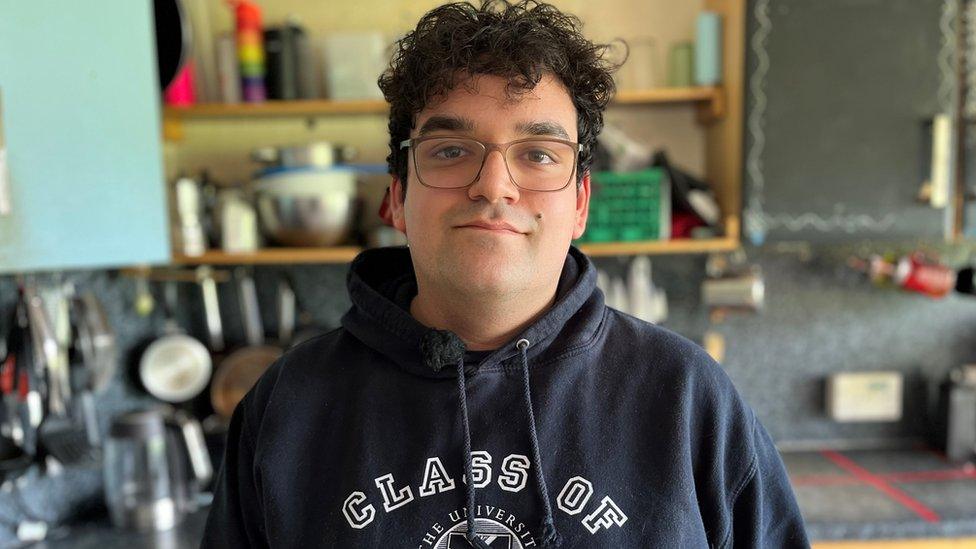
Alex Morzeria-Davis has made the student flat feel like home
For those who have found a place at ESHC, having lower-cost accommodation brings peace of mind.
Alex Morzeria-Davis, who studies French and Italian, has lived in other accommodation and moved to the co-op while in fourth year at the University of Edinburgh.
The student from England, who aspires to work for the Scottish government, shares a flat with four others and their cats. They each have a bedroom they can decorate and share two bathrooms and a kitchen/diner with a view across Bruntsfield Links to Arthur's Seat.
"We have control over the space." Alex said. "For me that's really important because I was separated from my family a few years ago so I don't have anywhere else, I don't have anywhere to go home for the summer, for Christmas. So this needs to feel like home, and it does.
"When you work together with people who share common interests and common goals you can create something a lot more valuable than someone profit-seeking at the top."
Alex, who works on the co-op's internet and finance teams, added: "We're told we're the brightest minds, we're the future of everything but at the same time we're treated as children and told we're not capable of building something like this.
"But if you look around you can see what we have managed to build independently is a thriving community of over 100 members with safe, stable and affordable housing.
"There are changes [from government] that would be helpful, but we don't need anything more than a group of passionate people to start a project like this.
"We're solvent here."
- Published24 April 2023
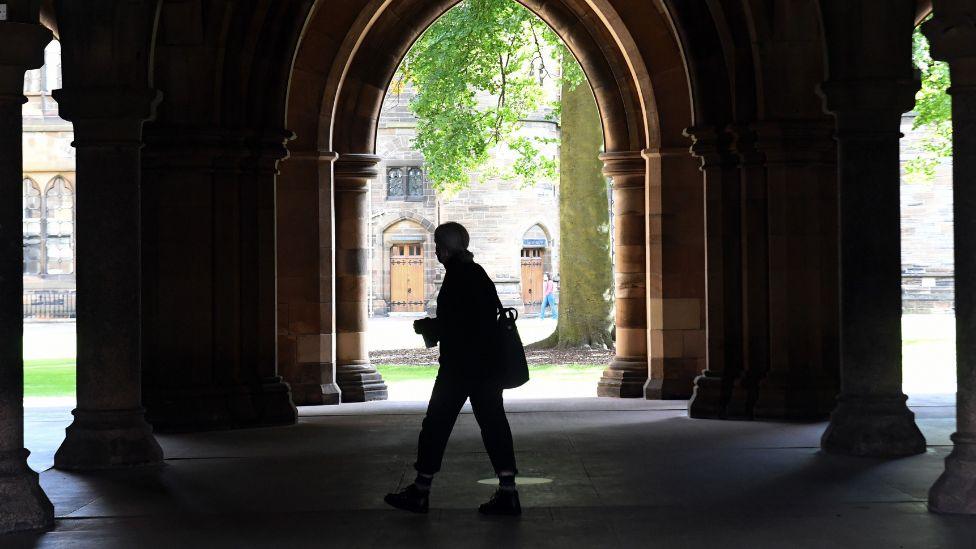
- Published11 May 2023
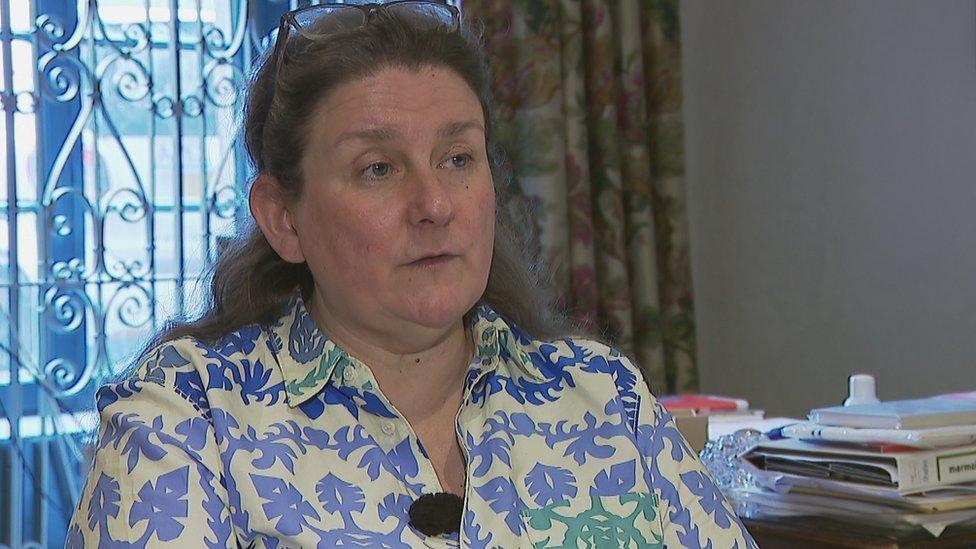
- Published19 January 2023

- Published11 October 2022
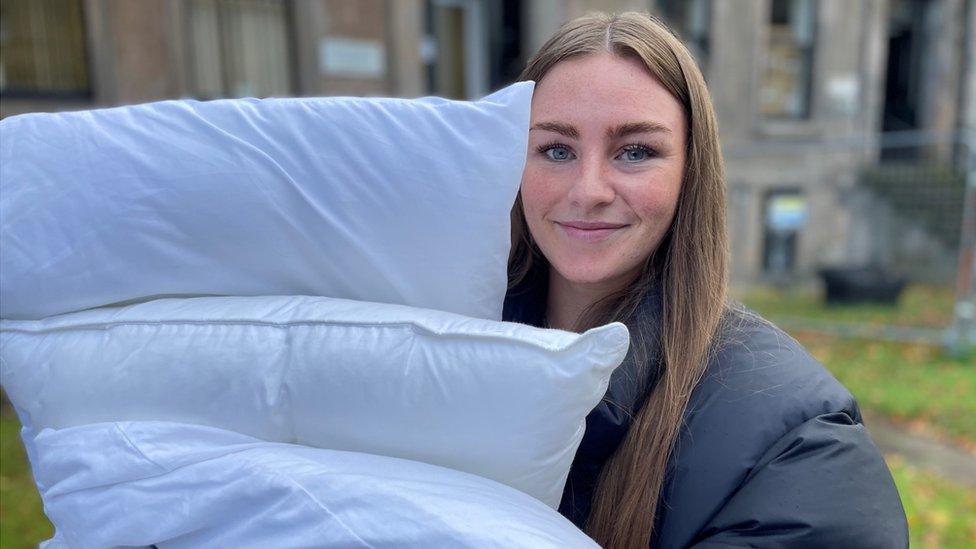
- Published17 November 2021
